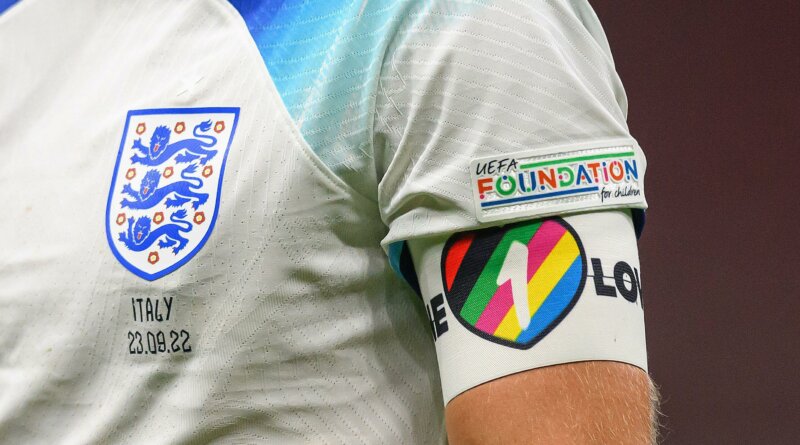One Love armband controversy – a timeline of events

Before the 2022 World Cup in Qatar, seven European teams competing at the tournament announced that they were planning to wear a special ‘One Love’ version of the captain’s armband.
The ‘One Love’ campaign was initially created by the Dutch FA to promote diversity and inclusion within the football community. Although it is not entirely focused on LGBTQ+ rights, the logo of the campaign is a rainbow which is the most common symbol associated with the LGBTQ+ community.
The armband was planned to be worn as a protest against Qatar’s human rights abuses. The country operates under a form of Sharia law which, for example, dictates that same-sex relationships are a criminal offence, resulting in up to seven years in jail. There are also the issues surrounding limited rights for women and the treatment of migrant workers during the construction of the stadiums and facilities in the build up to the tournament.
Until Sunday, these countries were unsure whether or not they would be punished. However, on Sunday evening, FIFA announced that if the armbands were to be worn, then the captains of those teams, who would be wearing the armband during the match, would receive an immediate yellow card at the start of the game.
As a result, on Monday morning, all of these countries made the decision not to wear the armband instead and will look to highlight these issues in other ways. England said in a statement on their website, “As national federations, we can’t put our players in a position where they could face sporting sanctions including bookings, so we have asked the captains not to attempt to wear the armbands in FIFA World Cup games.
“We were prepared to pay fines that would normally apply to breaches of kit regulations and had a strong commitment to wearing the armband. However, we cannot put our players in the situation where they might be booked or even forced to leave the field of play.”
This decision has received waves of criticism from fans, calling the players selfish and valuing sporting performance over important causes. Despite the sanctions imposed, pundit and former Lioness Alex Scott, who recently wrote about her same-sex relationship with former Arsenal and England teammate Kelly Smith in her book ‘How (Not) To Be Strong’, defiantly wore the armband whilst reporting from the sideline during the BBC’s coverage of England’s 6-2 victory over Iran.
The controversy didn’t end there for the day either. Before the USA vs Wales game on Monday evening, Welsh fans who wore bucket hats with rainbow patterns on them were shown having their hats confiscated before they entered the stadium. On the other side, American journalist Grant Wahl tweeted that he was not being allowed into the stadium because he was wearing a T-shirt with a rainbow logo.
On Wednesday, before their 2-1 defeat to Japan, Germany players were seen covering their mouths in their team photo. Germany’s English Twitter account tweeted during the match, “It wasn’t about making a political statement – human rights are non-negotiable. That should be taken for granted, but it still isn’t the case. That’s why this message is so important to us. Denying us the armband is the same as denying us a voice. We stand by our position.” After their defeat, the account received waves of responses criticising and making fun of this statement.
However, there has been minimal progress. On Friday morning, it was reported that rainbow hats and flags would now be allowed at all World Cup stadiums. However, in terms of wearing the armband, the stance remains the same, and it seems to still be an issue that no nation is willing to take the punishment for.




